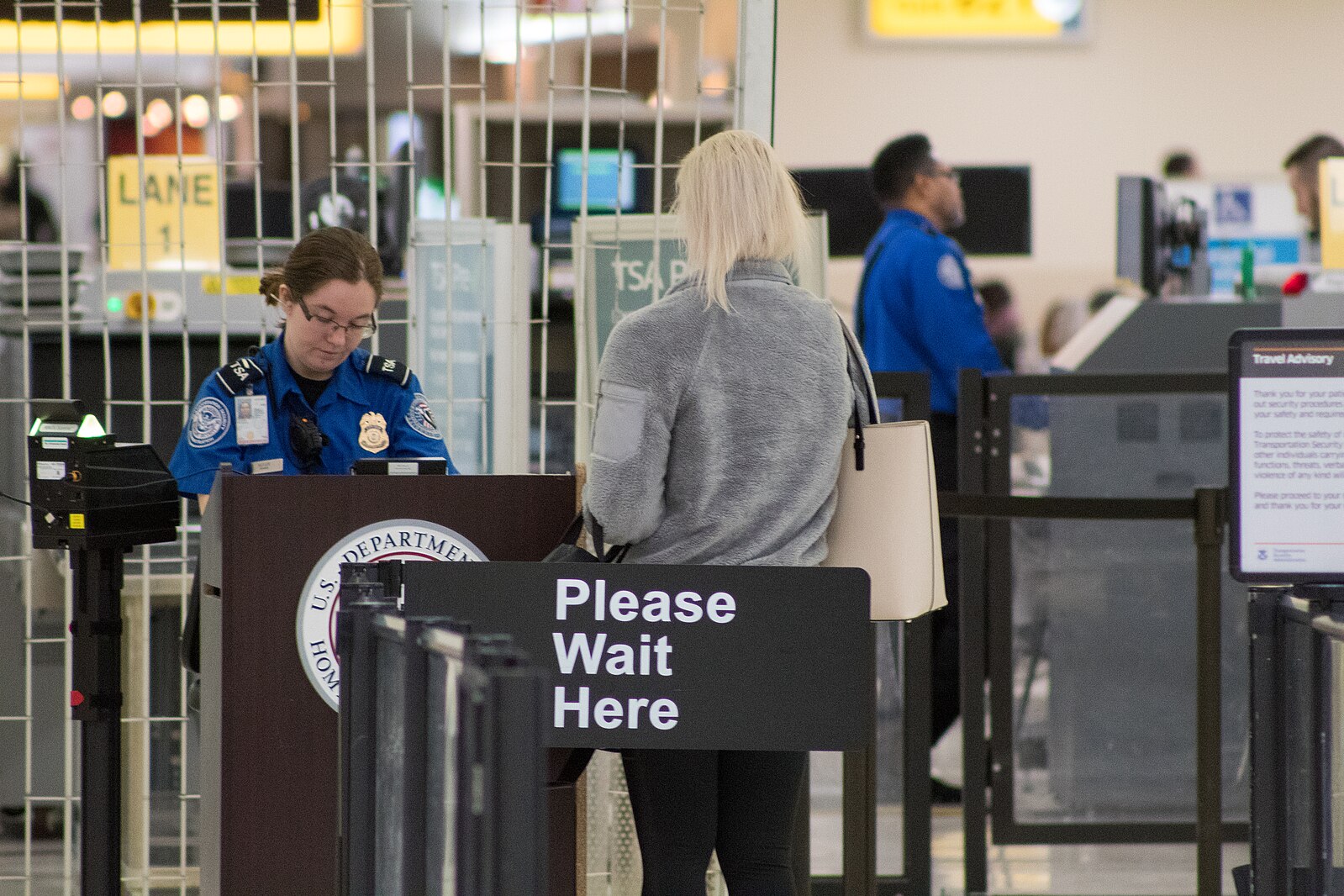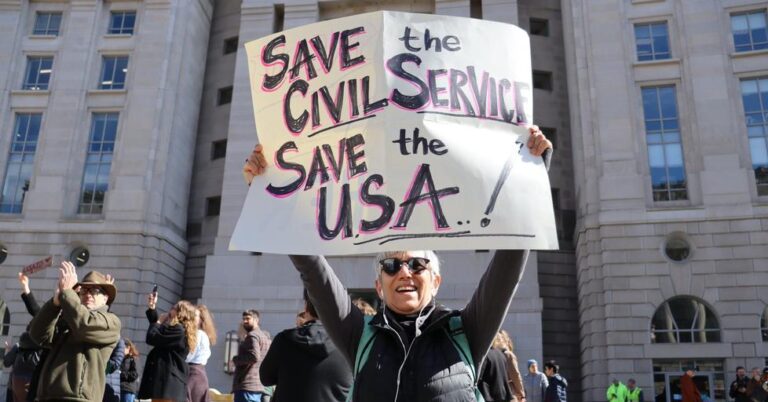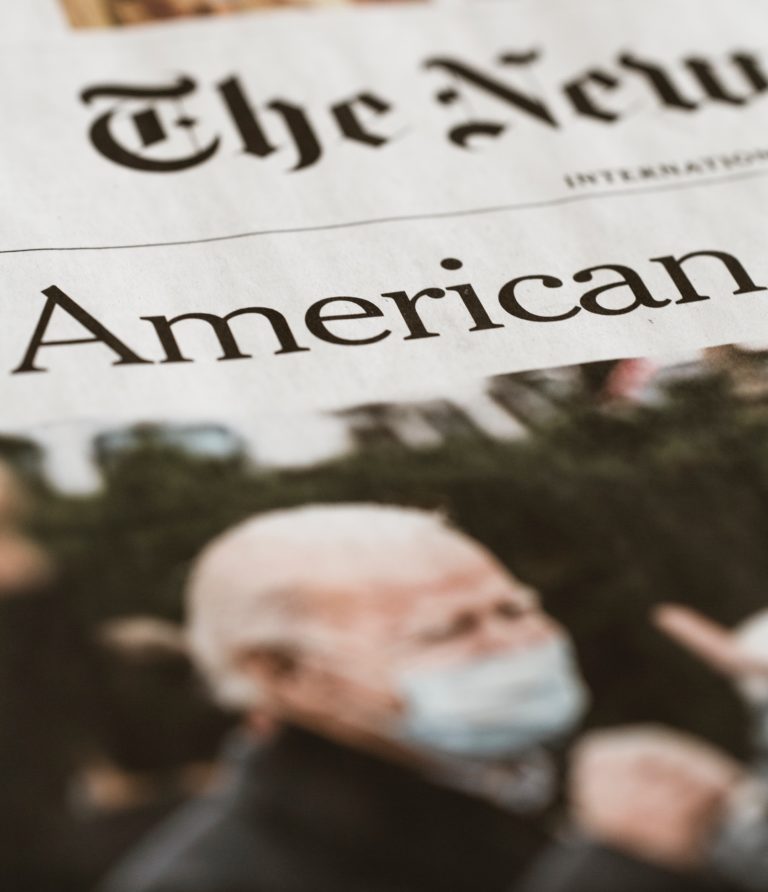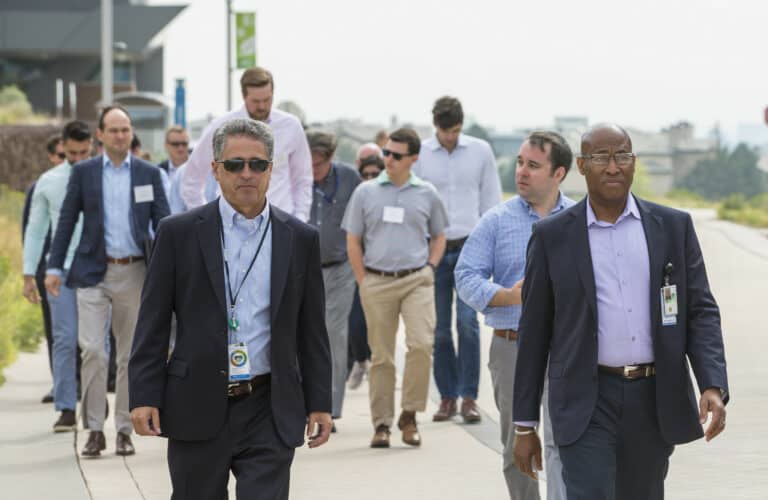
Lainey Newman is a student at Harvard Law School and a member of the Labor and Employment Lab.
Privatizing government services has long been part of Republican platforms. Over the years, conservatives have proposed — sometimes successfully — incremental efforts to privatize Medicare, the Veterans Affairs health system, public schools, and, of course, Social Security. Many of these proposals, however, encounter significant pushback. Privatizing Social Security, for example, has been floated in various forms since the early 1990s but is extremely unpopular amongst the public.
But what about privatizing a government service that Americans have historically not been as fond of? Many Americans have gripes with the Transportation Security Administration (TSA), the subagency of the Department of Homeland Security (DHS) whose main prerogative is ensuring safety of the skies. Privatizing TSA would be a return to the atomized system that was in place prior to September 11, 2001, when airport security screening was handled by private companies. Republican President George W. Bush created TSA in response to the safety lapses by airport security contractors that preceded the 9/11 terrorist attacks. Over the years, though, TSA has faced criticism from all angles — about everything from ineffectiveness of agents identifying planted weapons to instances of racial profiling.
For a long time, TSA employees were similarly critical of the agency. In 2010, employees ranked TSA 220th out of 224 agencies in the Best Places to Work in the Federal Government survey. But due to wage increases, benefit improvements, and collective bargaining rights initiated first by the Obama Administration and expanded under Biden, TSA employee satisfaction was on the rise. In 2021, the Secretary of Homeland Security Alejandro Mayorkas directed TSA to expand collective bargaining rights for workers. Biden also introduced a new TSA pay plan, which increased average worker pay by 26% from 2022 to 2023. In that one-year span, employee engagement and satisfaction jumped from 45.2% to 57.5%. Towards the end of the Biden Administration, not only had TSA agent attrition been cut in half, but customer satisfaction with TSA was at a record high of 93%, up from 66% in 2011.
TSA is now facing an existential crisis under the Trump Administration. In March 2025, Secretary of Homeland Security Kristi Noem announced via press release that she was terminating the collective bargaining rights of almost 50,000 TSA agents. Less than three weeks later, Senate Republicans introduced the “Abolish the TSA Act,” which would privatize all the work of the agency. Sponsored by Senators Mike Lee of Utah and Tommy Tuberville of Alabama, the bill would, within 90 days of enactment, initiate a “rapid transfer of security activities and equipment to qualified private companies.”
Both deunionizing and privatizing TSA come directly out of the Project 2025 playbook. Throughout the campaign, Trump continually disavowed Project 2025. But what has played out at TSA is lifted directly from the 900-plus page conservative manifesto. Chapter 5 of Project 2025, authored by Trump’s former Acting DHS Secretary Ken Cuccinelli, concerns DHS. The chapter states that “[u]ntil it is privatized, TSA should be treated as a national security provider, and its workforce should be deunionized immediately.” Although the Project 2025 authors didn’t dare propose privatizing Social Security or Medicare (at least in writing), TSA isn’t the only agency that Project 2025 proposes privatizing. It also proposed privatizing the National Oceanographic and Atmospheric Administration, the housing agencies Fannie Mae and Freddie Mac, the Federal Emergency Management Agency, and it notes that the goal for the federal government should be “to decentralize and privatize as much as possible.” Efforts to privatize the TSA aren’t completely new, though. In 2004, Republicans launched the Screening Partnership Program (SPP), which allows private security companies to do screening at 21 airports under the supervision of TSA employees. Many conservatives, including Senators Lee and Tuberville, have wanted to go further than SPP.
If the past is any prediction of the future, privatizing TSA would pose a whole host of problems, and it would not necessarily cure any of the gripes that Americans have with airport security. In fact, it would likely exacerbate them. For one, it would almost certainly mean a return to employee dissatisfaction. Companies that contract with the federal government to provide private airport security under the SPP program pay lower wages and provide worse benefits than TSA. Defense Consulting Services, for example, is an SPP participant that contracts with TSA at the Portsmouth International Airport in New Hampshire. They advertise “hourly pay ranging from $18.00 to $20.07 per hour,” or approximately $37,440 to $41,600 per year. In contrast, USA Jobs advertises a yearly salary ranging from $66,067 and $81,935 for government-employed TSA agents. Not to mention better benefits, which is a huge incentive for working a government job.
Noem’s unilateral announcement to revoke TSA agents’ collective bargaining rights was possible because of TSA’s legal structure. When TSA was created in the wake of 9/11, the agency was given more discretion over employees than most agencies have over federal employees. TSA agents are not covered by Title 5 of the U.S. Code, unlike almost all civilian employees of the federal government. Title 5 federal employees are paid according to the General Schedule system and are guaranteed certain benefits and rights, including the right to organize and bargain collectively, under statute. TSA employees’ rights and benefits, in contrast, are not written in statute; they are determined instead by executive action by the TSA Administrator, Secretary of Homeland Security, and President. So although Biden’s Secretary of Homeland Security Alejandro Mayorkas granted TSA agents collective bargaining rights commensurate with other federal workers, that was through executive action, which is subject to change by the next Administration.
Although Secretary Noem arguably has the authority to revoke previous agency action, collective bargaining agreements (CBAs) are protected under contract law. The union representing TSA agents, the American Federation of Government Employees (AFGE), and TSA had come to a new, seven-year CBA in May 2024. Noem’s memorandum, circulated internally on February 27, 2025, not only rescinds the right of TSA agents to bargain collectively in the future, but also cancels the 2024 CBA. Noem’s memo states that the CBA is “no longer applicable or binding and is hereby rescinded.” Of course, AFGE quickly filed suit. The CBA “is a binding contract,” the union’s complaint states. Noem “lack[s] authority to unilaterally rescind” the CBA, and her attempt to do so “is contrary to law.” The Government will likely make the argument that Project 2025 posited: “TSA should be treated as a national security provider,” and it’s unlawful for any member of the armed forces to be in a labor union. Ironically, though, if the Trump Administration argues that the TSA is a quasi-military agency, invalidates the union, and then privatizes the agency, workers for federal security contractors would once again be allowed to unionize. The Administration is likely not too worried about that, though, given how difficult Republican-led efforts have made it to unionize.
Privatization would introduce a new factor into the airport security equation: contractors’ profit motive. Sometimes, that can mean a more efficient system. Sometimes, it can be ruinous — worse quality services, labor cuts, customer dissatisfaction, and higher risk of error. To protect employees and the American public, legislators should reject the privatization of the TSA.










Daily News & Commentary
Start your day with our roundup of the latest labor developments. See all
February 16
BLS releases jobs data; ILO hosts conference on child labor.
February 15
The Office of Personnel Management directs federal agencies to terminate their collective bargaining agreements, and Indian farmworkers engage in a one-day strike to protest a trade deal with the United States.
February 13
Sex workers in Nevada fight to become the nation’s first to unionize; industry groups push NLRB to establish a more business-friendly test for independent contractor status; and UFCW launches an anti-AI price setting in grocery store campaign.
February 12
Teamsters sue UPS over buyout program; flight attendants and pilots call for leadership change at American Airlines; and Argentina considers major labor reforms despite forceful opposition.
February 11
Hollywood begins negotiations for a new labor agreement with writers and actors; the EEOC launches an investigation into Nike’s DEI programs and potential discrimination against white workers; and Mayor Mamdani circulates a memo regarding the city’s Economic Development Corporation.
February 10
San Francisco teachers walk out; NLRB reverses course on SpaceX; NYC nurses secure tentative agreements.